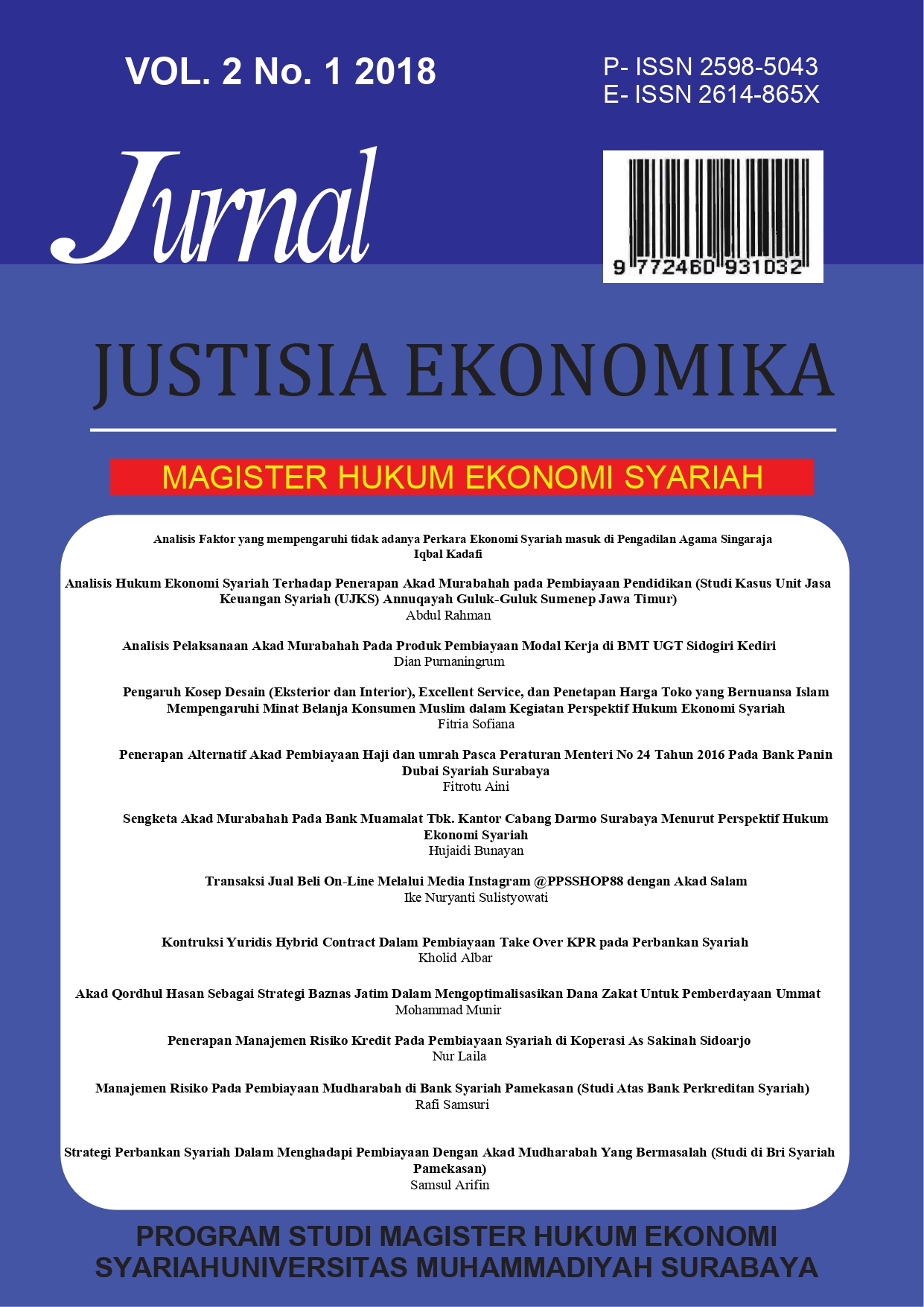Analisis Faktor yang mempengaruhi tidak adanya Perkara Ekonomi Syariah masuk di Pengadilan Agama Singaraja
DOI:
https://doi.org/10.30651/justeko.v2i1.1691Abstrak
ABSTRACT
By a implementation of Law No.3, 2006 which is a revision of Law No.7, 1989 concerns with Religious Courts which is reinforced by Constitutional Court decision Number : 93/PUU- X/2012, on 29 Agustus 2013 judicial review cases toward a regulation section 55, article 2 of Law no 21, 2008 about Sharia Banking, it means that the position of Religious Courts increasingly strong and clear. This is in line with the increasing absolute authority of Religious Courts, especially in handling sharia economic cases.
The authority of the Religious Courts in the field of Islamic economics already covers the entire field of sharia economy and business activities of sharia economy, which basically was born because of a contract or agreement based on sharia principles.
Singaraja which is the capital of Buleleng Regency is located at Ujung Utara Island Bali Province whose majority of the population is Hindu and their economic activity uses sharia akad, or it is often mixed between sharia system with local legal culture of Singaraja people who tend to avoid contact with law and court so that it is rarely even there is no issue concerning with sharia economy into the Religious Court of Singaraja.
Nevertheless, the Religious Court of Singaraja must prepare itself by building a reliable and professional human resources if the case of sharia economic will be entered anytime there.
Â
Keywords: Authority of Religious Courts and Issues of Sharia Economics in minority areas
Unduhan
Diterbitkan
Cara Mengutip
Terbitan
Bagian
Lisensi
HAK CIPTA
Penulis yang mengirimkan artikel dalam jurnal Justisia Ekonomika harus memahami dan menyetujui persyaratan tentang hak cipta jurnal Justisia Ekonomika sebagai berikut:
1. Hak Cipta tulisan / artikel yang diterbitkan di jurnal Justisia Ekonomika otomatis menjadi hak pengelola jurnal atau publisher
2. Meskipun Hak Cipta atas tulisan yang telah diterbitkan di jurnal Justisia Ekonomika adalah menjadi haknya publisher, tetapi penulis masih mempunyai hak untuk : a). Penulis boleh meng-upload di repository kampus, b). Penulis boleh meng-upload di webnya sendiri, c). Penulis boleh meng-upload di google schoolar, orchid dan sinta
LISENSI
Lisensi atas tulisan / artikel yang diterbitkan di jurnal Justisia Ekonomika adalah menggunakan Creative Commons dengan atribusi CC-BY-NC 4.0






















